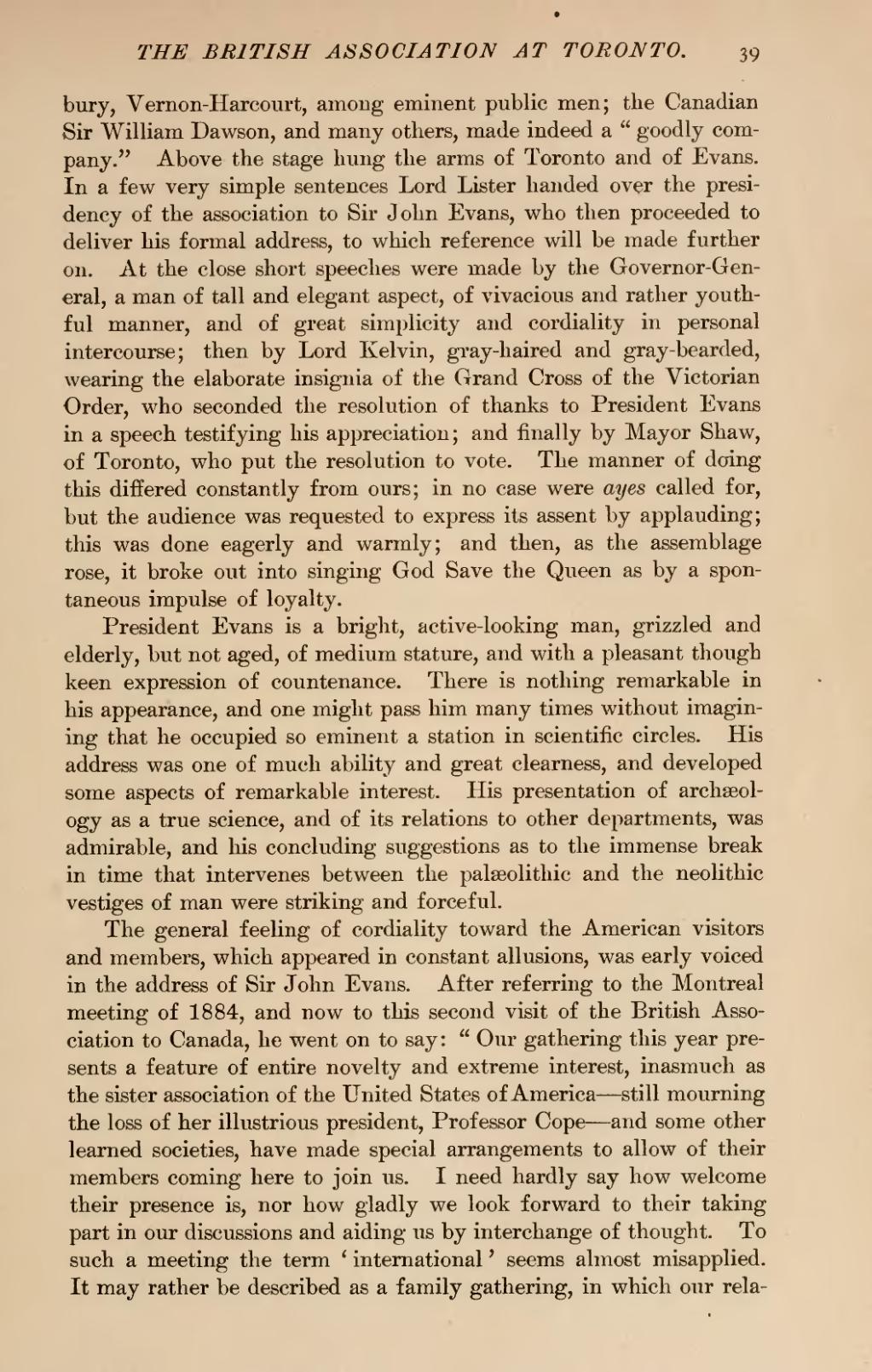bury, Vernon-Harcourt, among eminent public men; the Canadian Sir William Dawson, and many others, made indeed a "goodly company." Above the stage hung the arms of Toronto and of Evans. In a few very simple sentences Lord Lister handed over the presidency of the association to Sir John Evans, who then proceeded to deliver his formal address, to which reference will be made further on. At the close short speeches were made by the Governor-General, a man of tall and elegant aspect, of vivacious and rather youthful manner, and of great simplicity and cordiality in personal intercourse; then by Lord Kelvin, gray-haired and gray-bearded, wearing the elaborate insignia of the Grand Cross of the Victorian Order, who seconded the resolution of thanks to President Evans in a speech testifying his appreciation; and finally by Mayor Shaw, of Toronto, who put the resolution to vote. The manner of doing this differed constantly from ours; in no case were ayes called for, but the audience was requested to express its assent by applauding; this was done eagerly and warmly; and then, as the assemblage rose, it broke out into singing God Save the Queen as by a spontaneous impulse of loyalty.
President Evans is a bright, active-looking man, grizzled and elderly, but not aged, of medium stature, and with a pleasant though keen expression of countenance. There is nothing remarkable in his appearance, and one might pass him many times without imagining that he occupied so eminent a station in scientific circles. His address was one of much ability and great clearness, and developed some aspects of remarkable interest. His presentation of archæology as a true science, and of its relations to other departments, was admirable, and his concluding suggestions as to the immense break in time that intervenes between the palæolithic and the neolithic vestiges of man were striking and forceful.
The general feeling of cordiality toward the American visitors and members, which appeared in constant allusions, was early voiced in the address of Sir John Evans. After referring to the Montreal meeting of 1884, and now to this second visit of the British Association to Canada, he went on to say: "Our gathering this year presents a feature of entire novelty and extreme interest, inasmuch as the sister association of the United States of America—still mourning the loss of her illustrious president, Professor Cope—and some other learned societies, have made special arrangements to allow of their members coming here to join us. I need hardly say how welcome their presence is, nor how gladly we look forward to their taking part in our discussions and aiding us by interchange of thought. To such a meeting the term 'international' seems almost misapplied. It may rather be described as a family gathering, in which our rela-
